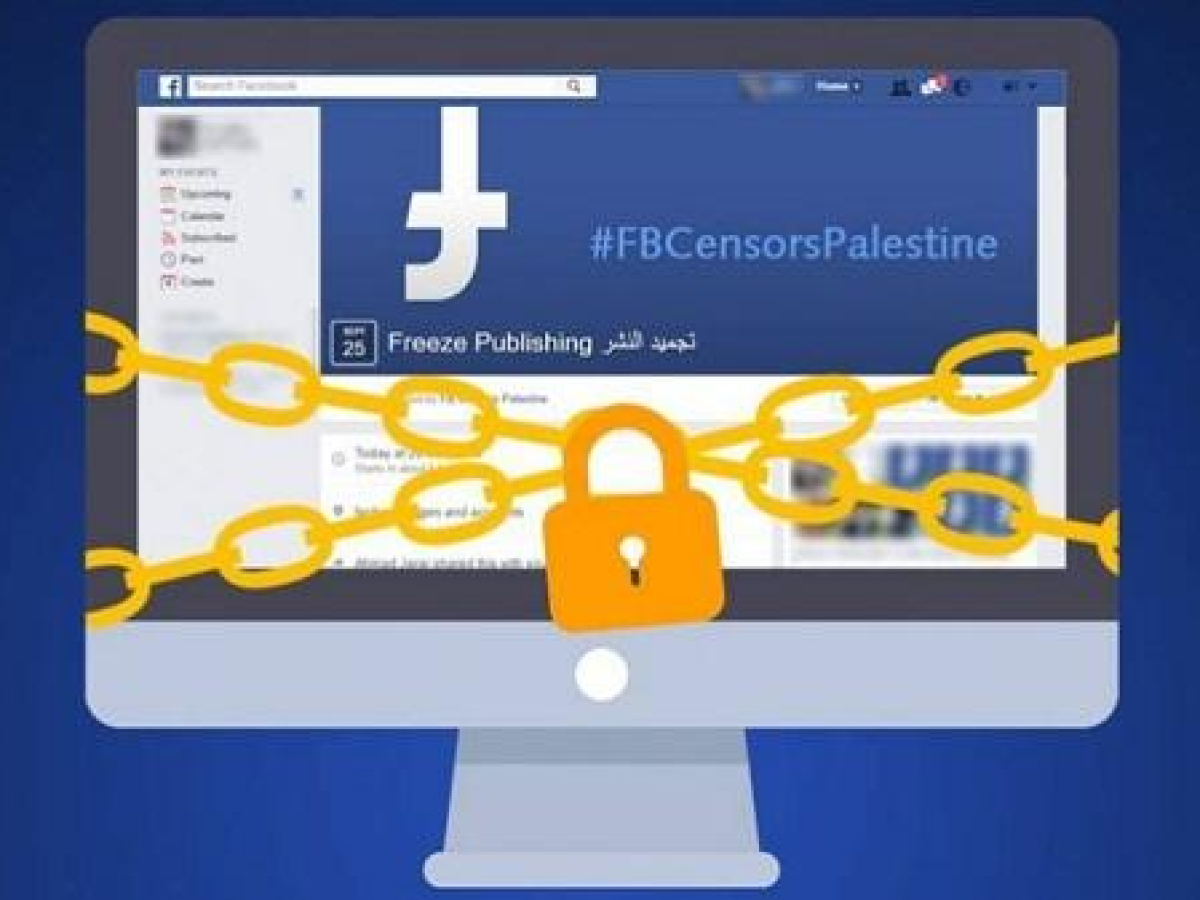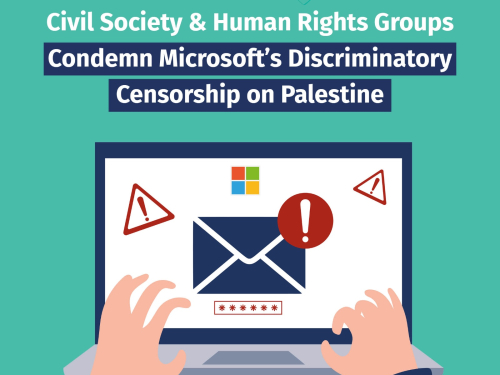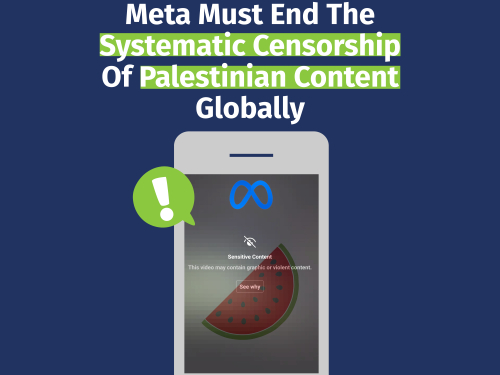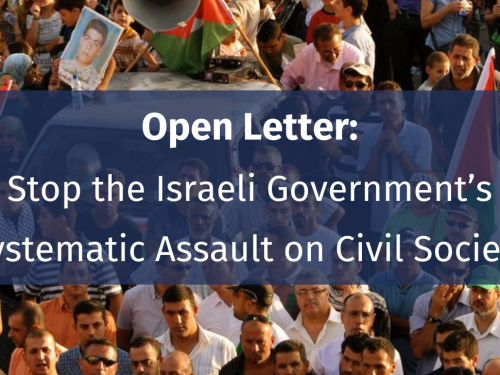
Salah Alayan Secretary General, Council of Ministers Office of the Council of Ministers Ramallah-Masyoun
Your Excellency, We are writing to you to welcome proposed revisions to the recently passed Law on Electronic Crimes (16 of 2017), and urge you to ensure that any amended draft fully respects the rights to freedom of expression, privacy and protection of data in line with Palestine’s international and domestic legal obligations.
We understand that discussions are still ongoing between Palestinian civil society organizations, the Council of Ministers, the Ministry of Justice and the Attorney General’s office regarding the necessary amendments, and we therefore offer our recommendations for your consideration. In a briefing published in August 2017, Amnesty International raised concern at the escalation in attacks on freedom of expression[1] by the Palestinian Authority (PA) in the West Bank and the Hamas authorities in the Gaza Strip. In particular, Amnesty International expressed concern that the Electronic Crimes law was being used a tool to silence legitimate free expression and criticism of the authorities, and called for authorities to repeal or amend the law to fully safeguard Palestinian rights to freedom of expression, privacy and protection of data.
Our organizations are encouraged to see that the new draft finalized on 4 December, and shared with Amnesty International on 14 December, no longer includes broad language that sets out punishments for expression that “infringes upon public morals,” (Art. 16), “would endanger the integrity of the Palestinian state, the public order or the internal or external security of the state,” (Art 20, 1 and 2), “offend[s] a sacred religious rite or belief” (Art 21), “attack[s] any family principles or values relating to the inviolability of private and family life” (Art 22), and “is committed with the purposes of disturbing public order… or with the intention of harming national unity, [and] social peace” (Art 51).
The open-ended language in these articles permits the imposition of prison sentences and heavy fines solely for peaceful online criticism of authorities. The revised draft also proposes to amend Article 31 that criminalizes the use of circumvention technology including proxies and virtual private networks (VPNs). While we welcome the proposed amendments, we fully support the calls made by Palestinian civil society to further amend the Electronic Crimes law to ensure that it fully complies with international standards, and Palestine’s obligations under international law, including the International Covenant on Civil and Political Rights, acceded to by Palestine in 2014.
Under international law, authorities may only restrict free expression if demonstrably necessary and proportionate to protect certain public interests (e.g. national security or public safety, public order, protection of public health or morals) or the rights and freedoms of others and never solely to restrict peaceful criticism of a political authority. Countries should also safeguard the right to privacy, a gateway right that affects the ability to exercise almost every other right, in particular freedom of expression and freedom of assembly and association. Our organizations therefore recommend amending or repealing the following articles from any revised legislation:
- Articles 32 and 33, which oblige service providers to provide subscriber information “at the request of the prosecution or the competent court” and retain that information for at least three years without clarifying what that entails or setting out restrictions or sufficient safeguards against abuse. The data retention requirement disproportionately infringes on the right to privacy of all users since it requires collection of their data regardless of whether they are suspected of wrongdoing.
- Articles 33 and 34, which permit authorities to “seize” information systems and IT tools used in the commission of a crime, including those identified above, without sufficient safeguards.
- Article 35, which allows the public prosecution, upon order of a magistrate court, to conduct surveillance on individuals for a period of 15 days, renewable once “providing the availability of new evidence,” to “uncover evidence relating to the misdemeanour or felony.” By failing to specify the conditions under which authorities may resort to such surveillance measures, this article leaves room for abuse.
- Article 40, which enables the Attorney General, without a court order or sufficient safeguards against abuse, to block websites that publish “material that may threaten the national security, civil peace, public order or public morals”. Our organizations are concerned that this article lacks the specificity necessary to allow individuals to regulate their own conduct accordingly. Article 31 in its amended form further sets out punishments, including prison sentences and fines, for those who intentionally publish information from these blocked websites. These provisions raise concerns about disproportionate and arbitrary restrictions on freedom of expression.
We hope that our concerns listed above are taken into consideration as work on a new draft of the Electronic Crimes law continues. Thank you for your attention. Yours sincerely, Amnesty International Avaaz Human Rights Watch 7amleh: The Arab Center for the Advancement of Social Media.
Related Articles
Subscribe to Our Email Alerts
And stay updated with our latest activities, news, and publications!








